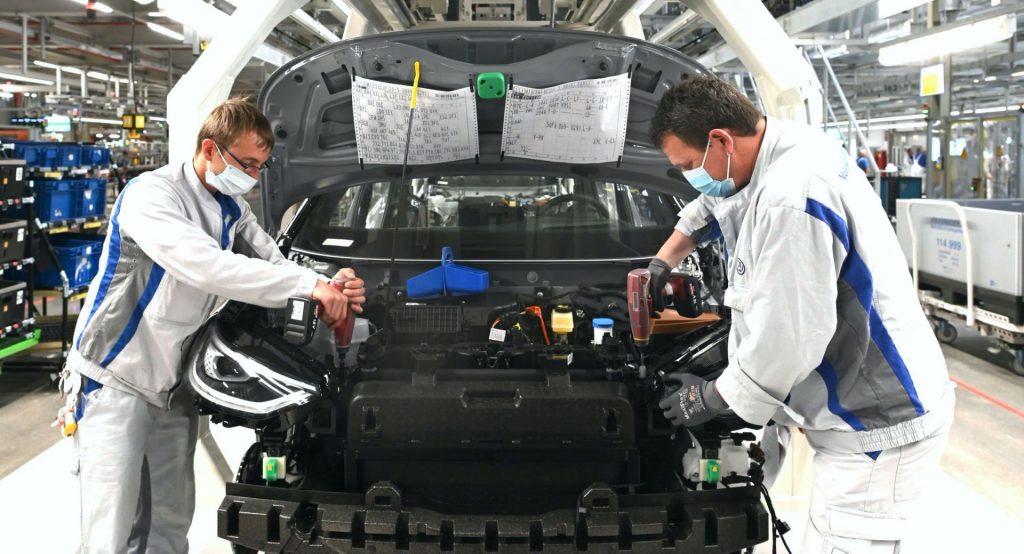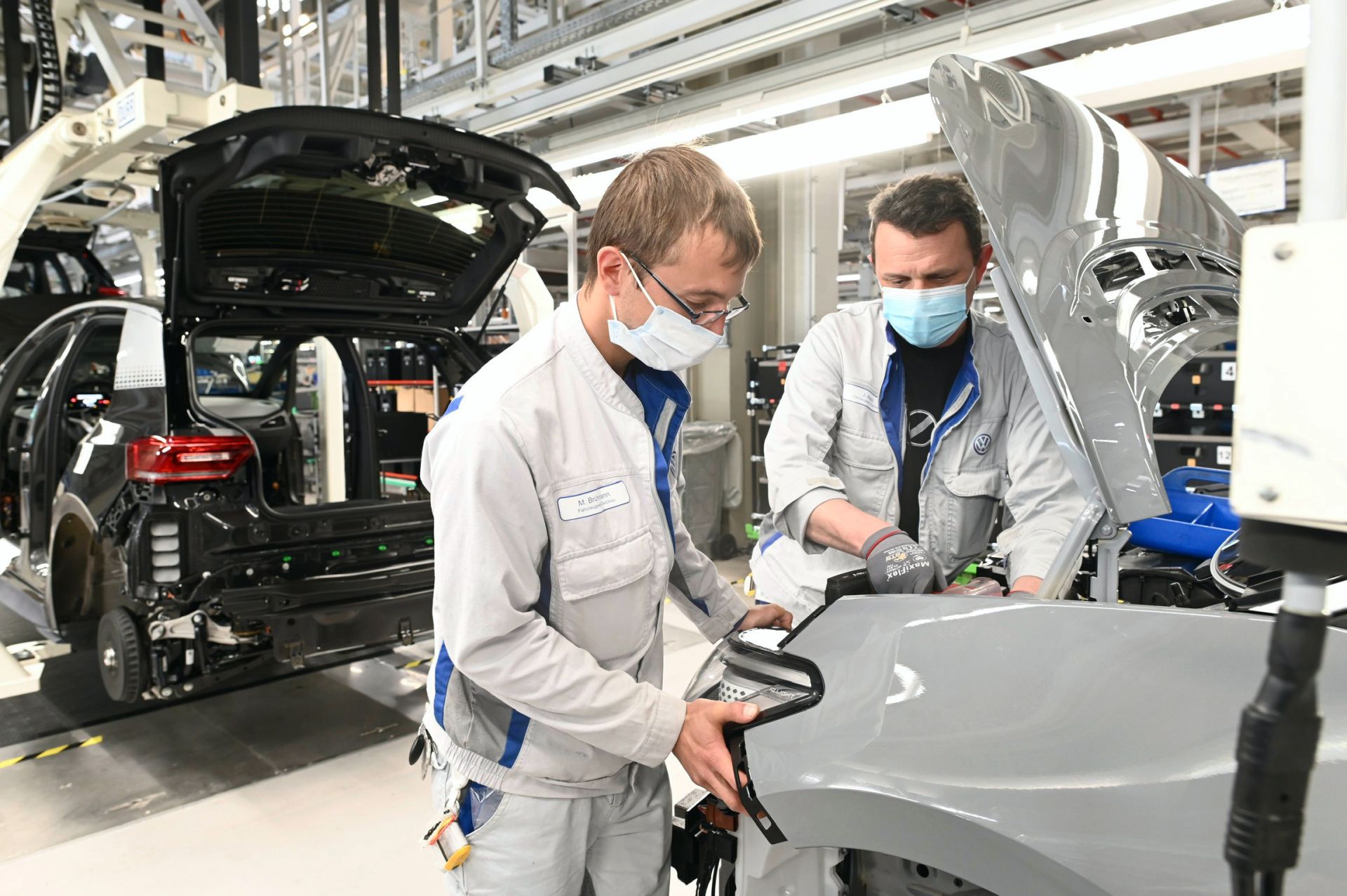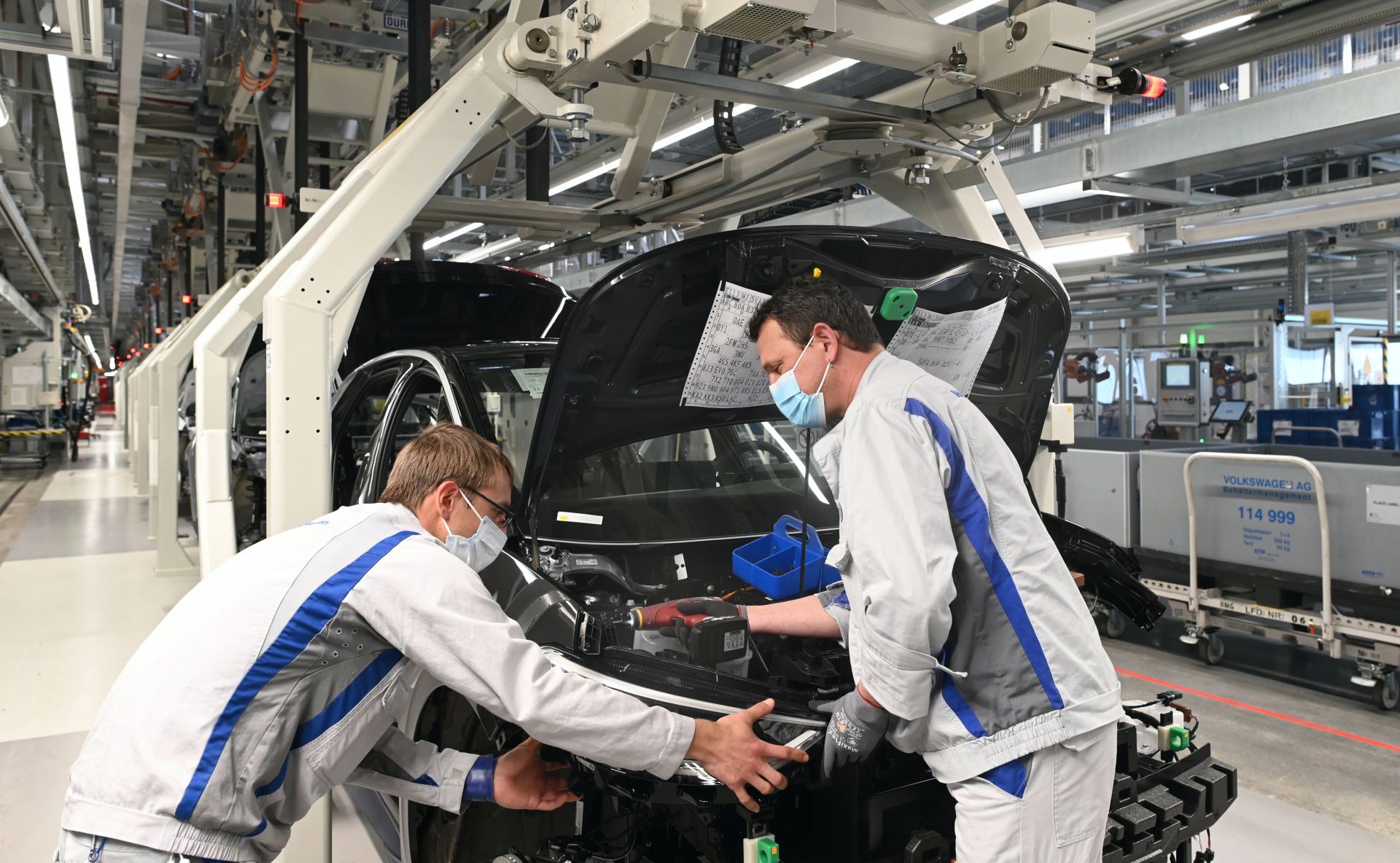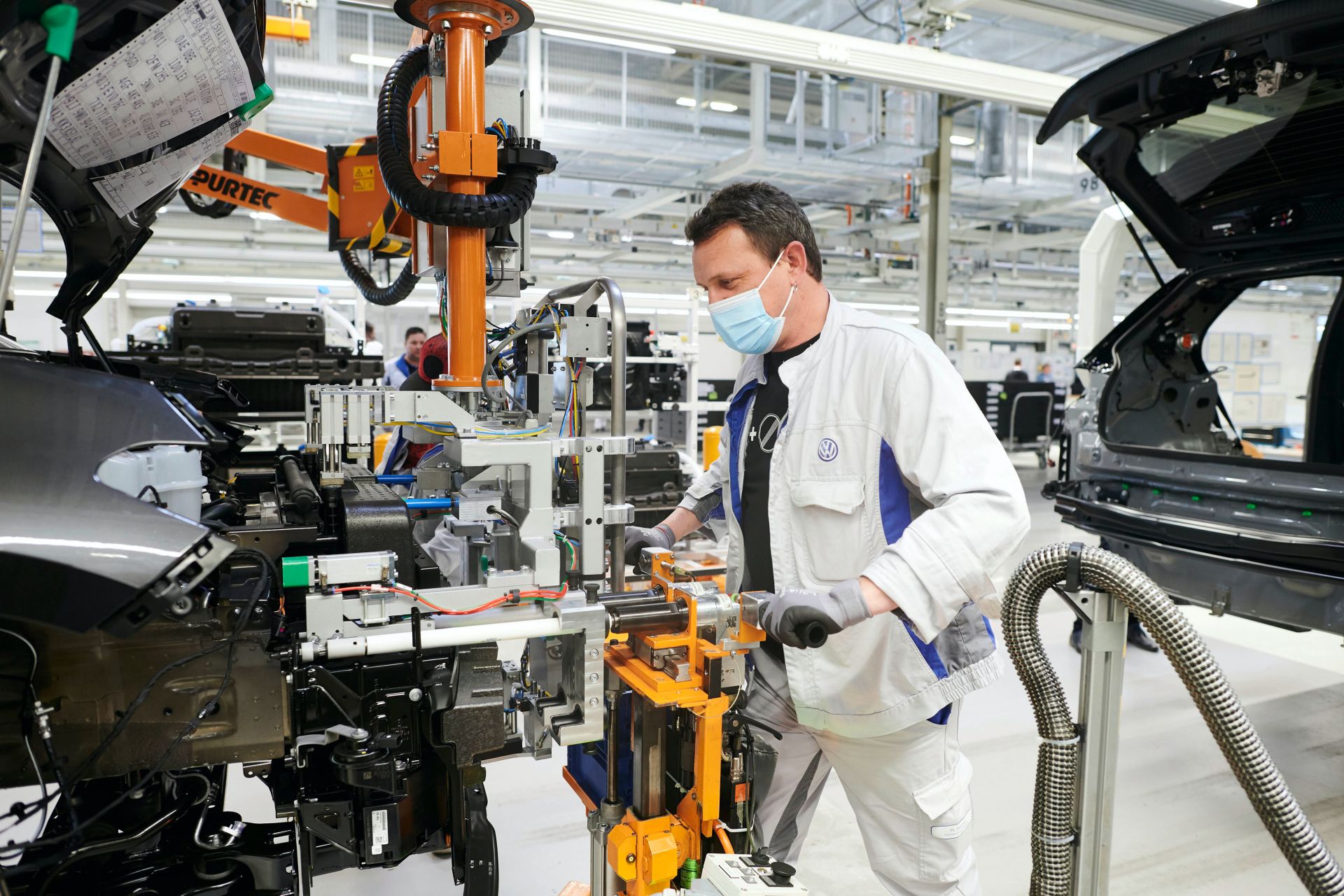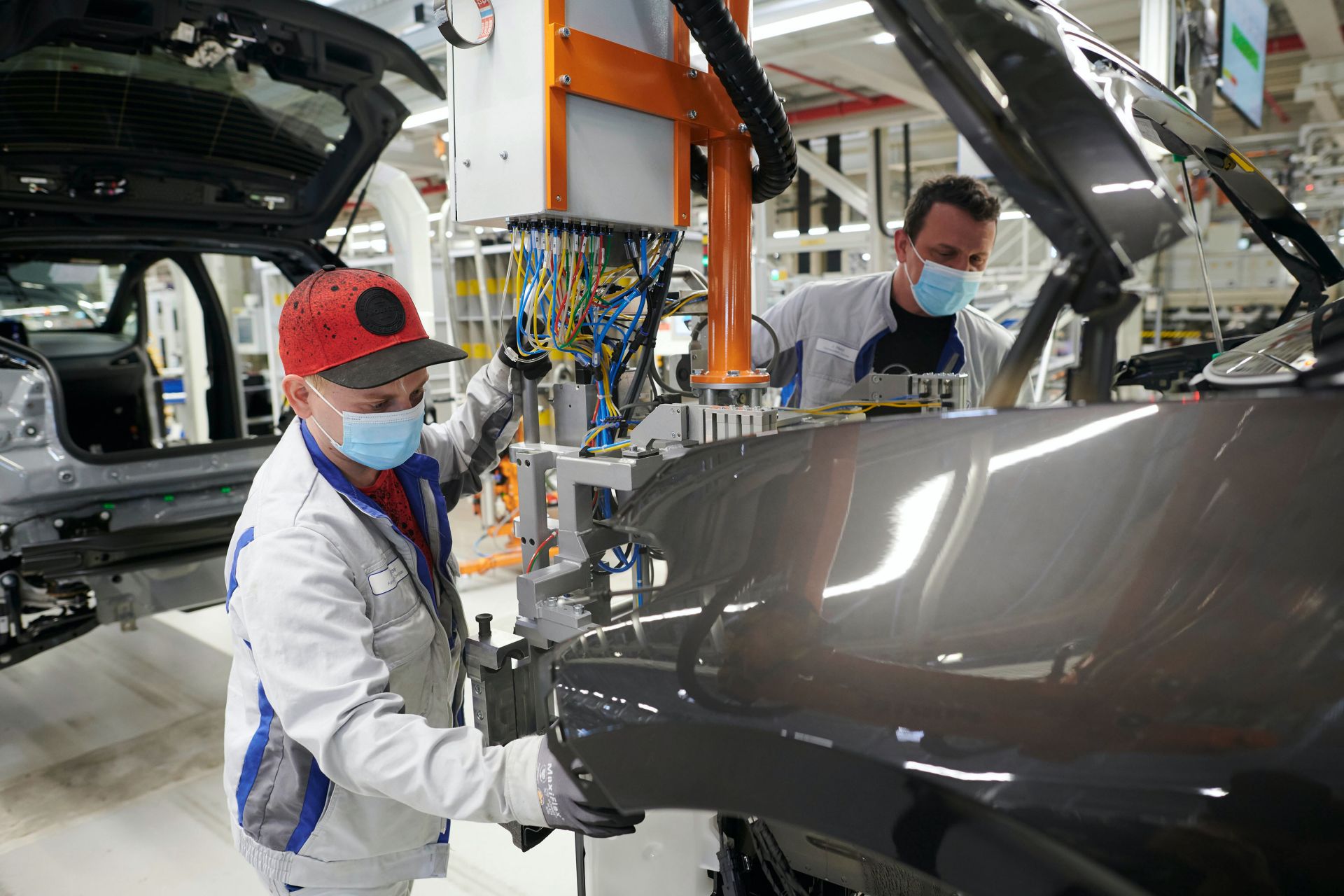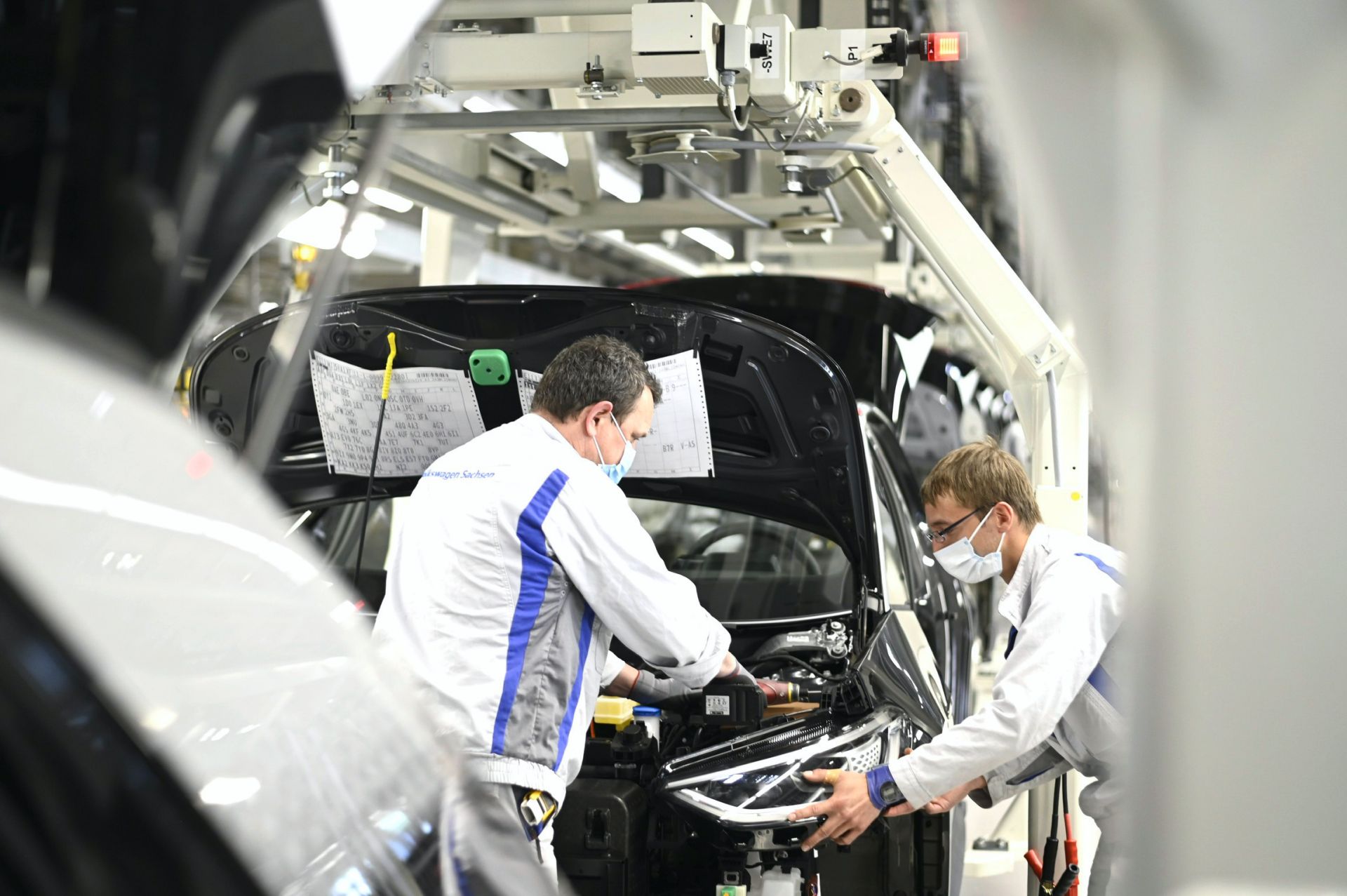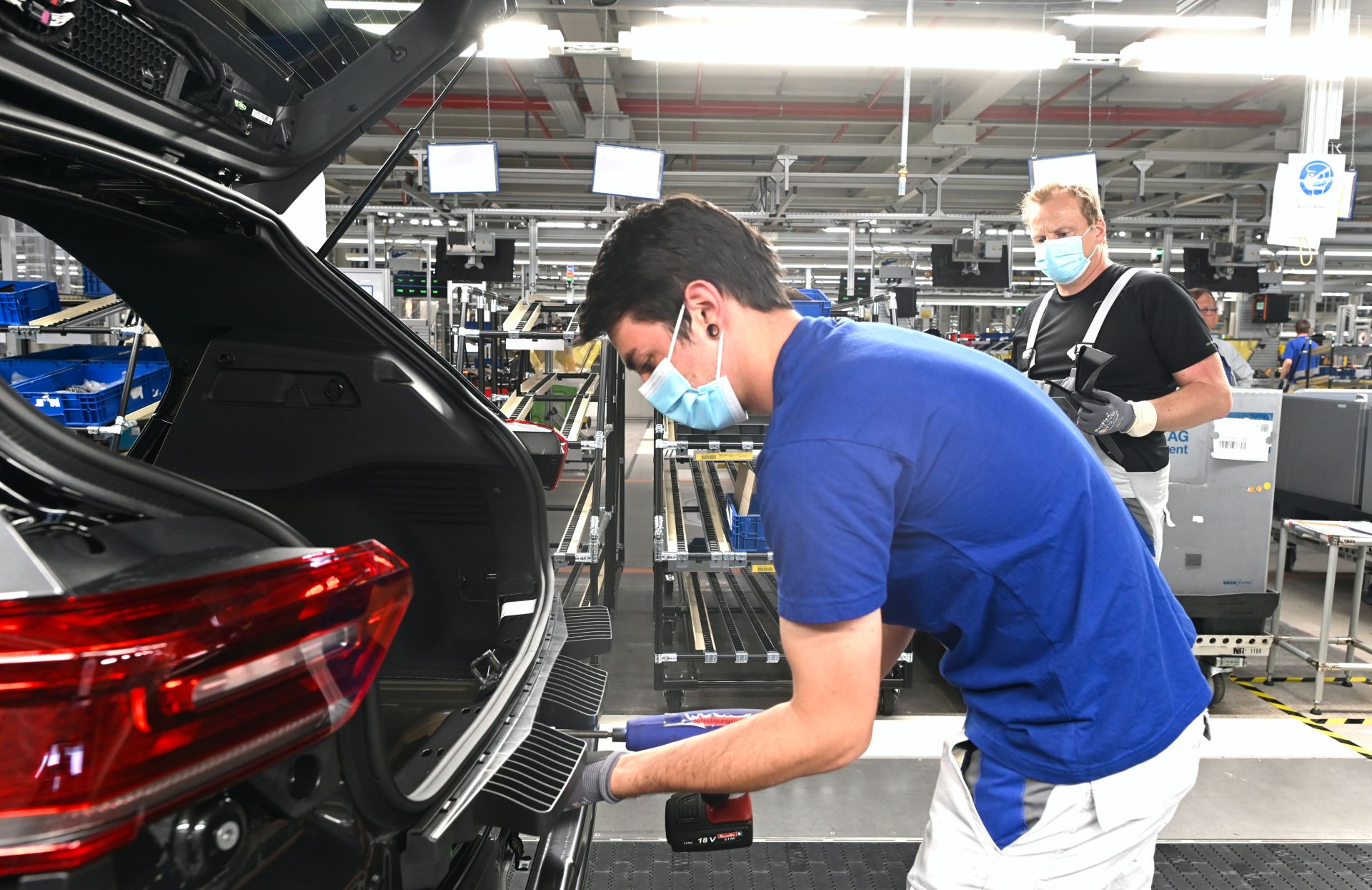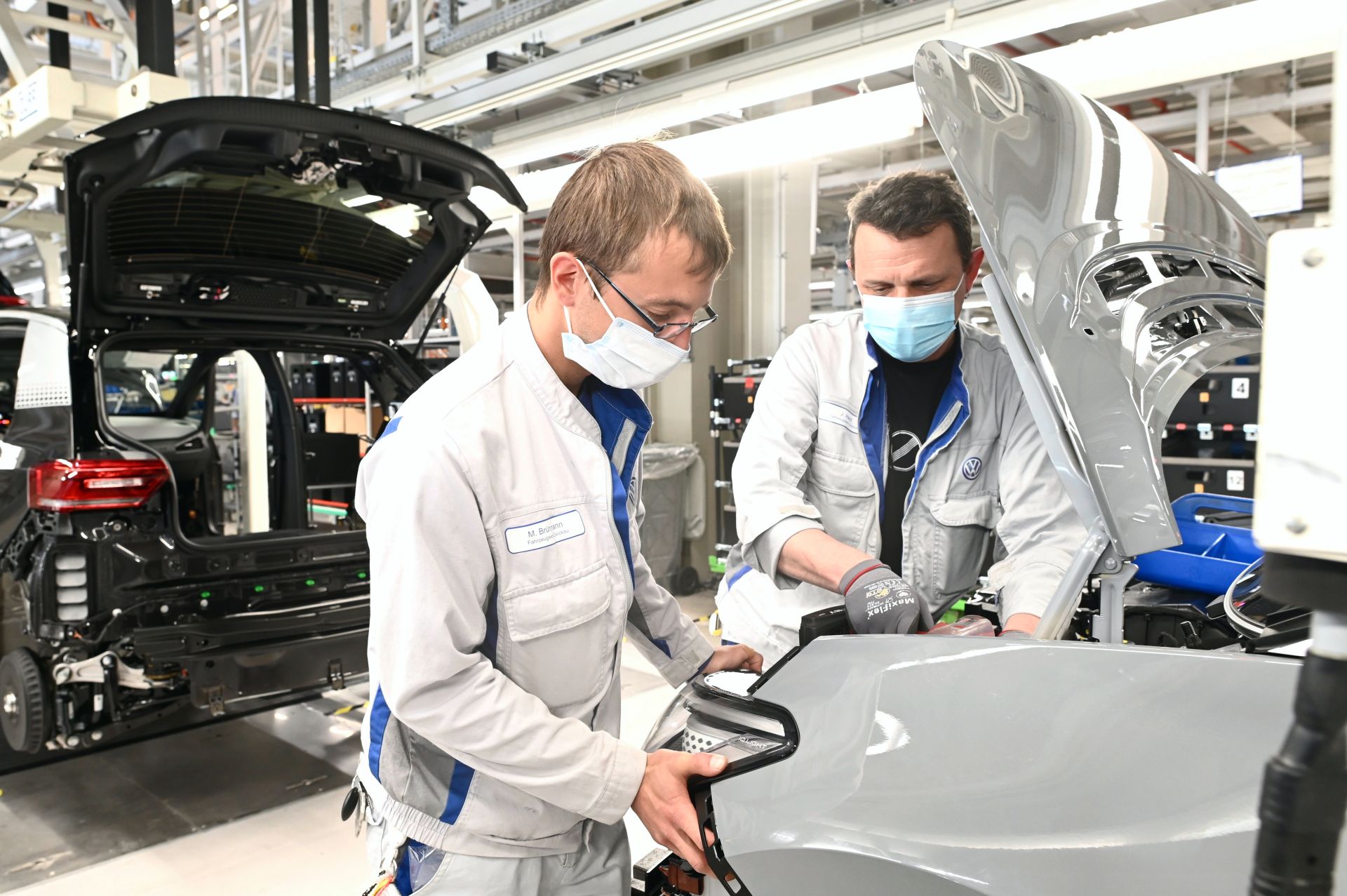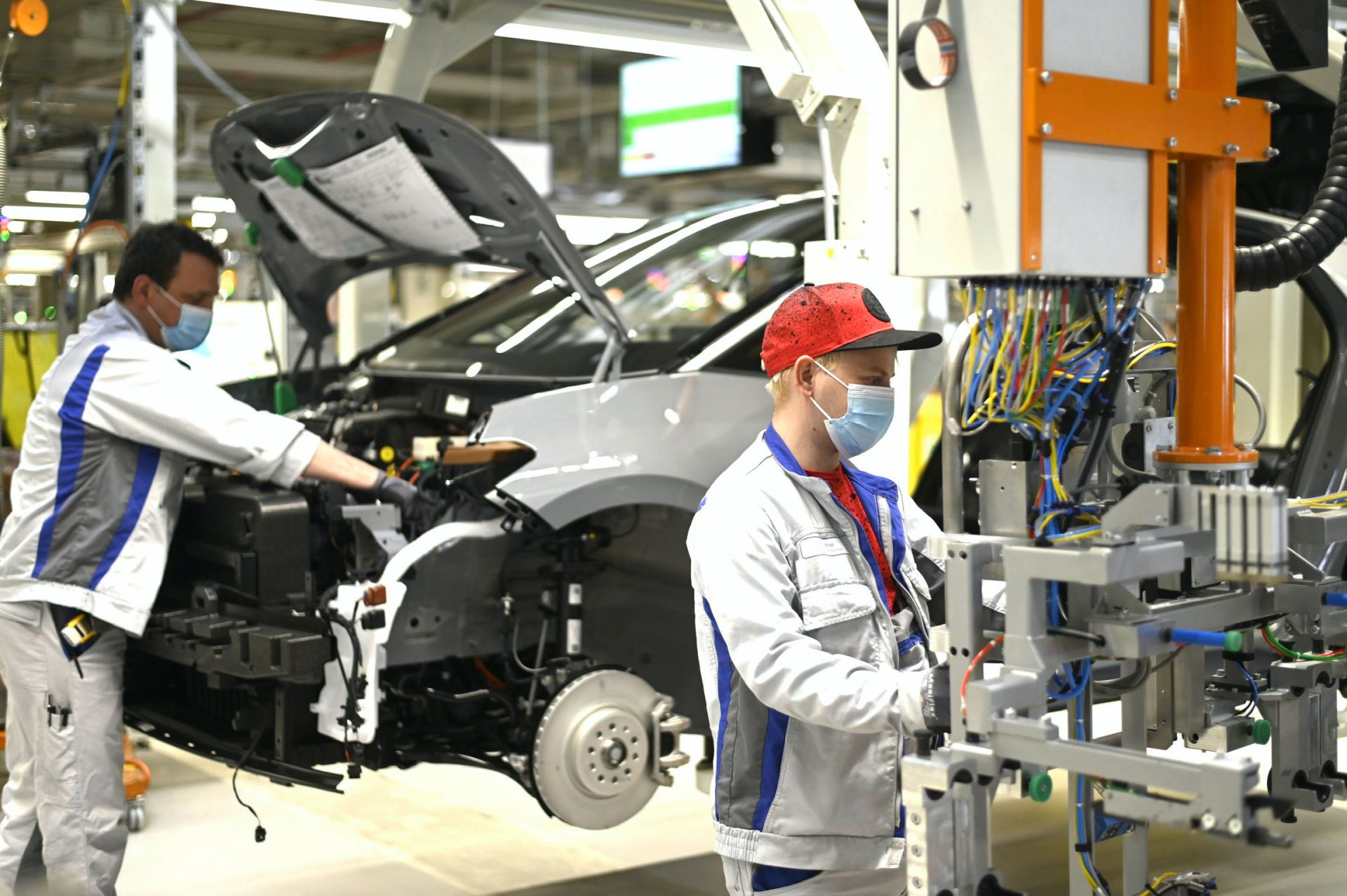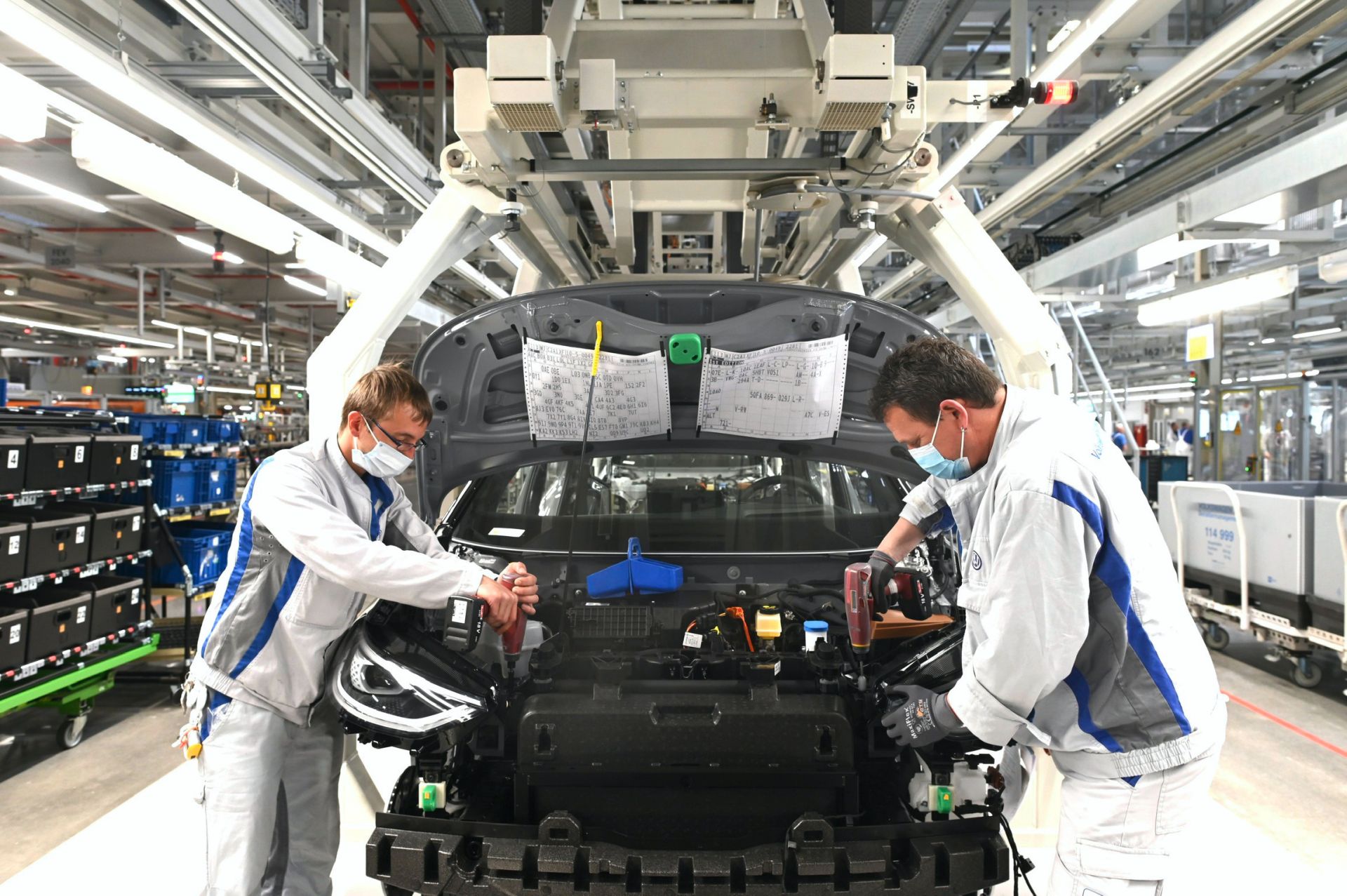Europe’s automotive industry is slowly coming back to life, with Volkswagen being the latest carmaker to announce a plant reopening.
The company said its plant in Zwickau, Germany is its first factory in Germany to gradually resume production on Thursday, April 23. At the beginning, the plant will operate with a reduced capacity and significantly slower cycle times to build the ID.3 electric vehicle.
According to VW, numerous additional measures to protect the workers’ health are being implemented and the restart also depends on the gradual stabilization of international supply chains.
Read Also: Spain’s SEAT Testing All Employees For Coronavirus As Production Resumes April 27
“At Volkswagen, health takes precedence over speed. That is why the primary concern at the moment is not how many cars can be built per day,” said Thomas Ulbrich, Volkswagen Brand Board Member for E-Mobility and Speaker of the Management Board of Volkswagen Sachsen. “What is more important is that the e-mobility transformation process already underway begins gathering pace again today. The ID.3 is one of the key vehicle projects for Volkswagen,” he added.
In the first phase, the plant will build 50 cars per day at reduced speed – that’s about one third of the production volume prior to the corona pandemic. Some units at components plants have already recommenced the supply of parts, with appropriate protective measures.
The Chemnitz engine plant, for example, will also begin gradually ramping up production on Thursday, April 23. This will be followed by the phased resumption of Golf Variant (Mk7) production at Zwickau on Monday, April 27. On the same day, the Gläserne Manufaktur Dresden will resume production of the e-Golf at reduced capacity.
VW and the Works Council have agreed a comprehensive package of measures to provide protection against the virus. Those include specific rules on distances and hygiene, the obligation to wear mouth and nose protection in areas where minimum distances of 1.5 meters are not possible, and shorter cleaning intervals.
Additionally, the shifts will be separated in order to avoid contacts and employees are required to measure their temperature before starting work each day.



